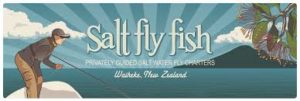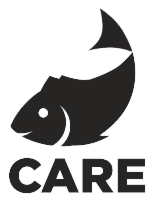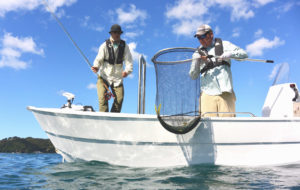
My charter business is called Saltflyfish and I am based on Waiheke Island. With an increasing number of first time and experienced fishers turning to fly fishing I am kept busy with teaching and chartering.
I have noticed that in our busy world of ever-increasing complexity, technology has both liberated and captured us. It potentially jeopardizes the continued existence of humans on the planet yet also offers our greatest chance of continuance. Fishing, by comparison, can be a pastime of simplicity and not only provides a place to escape but also takes me closer to the awesome power of nature itself. Engaging with fish and the habitat they live in connects me to part of myself, where my food comes from and teaches me both the immense power of the ocean and its fragile nature. To function and thrive in our current predicament I believe we need this balance and a reminder that we as humans are also part of nature. The ocean is vital and our interdependence with it is influenced by how we interact with it.
I choose to fish in a way that tests my skills, knowledge and observations. Having moved away from using bait I have found the skill required to first make a fly and then master the skills required to cast and present in a way to produce an instinct response from the fish gives me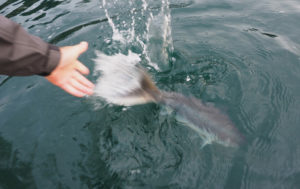 what I am seeking. While fly-fishing has an established catch and release ethic it is also a really fun way to catch a feed of healthy wild-caught food.
what I am seeking. While fly-fishing has an established catch and release ethic it is also a really fun way to catch a feed of healthy wild-caught food.
There are other reasons that fly fishing (and other forms of lure fishing) satisfy my sensibilities of care and respect. Without bait, fish strike at the lure and are hooked instantly in the mouth. Using barbless hooks, rubberised nets and taking a minimum of time to hold the fish out of water for the “grip and grin photo” allows me to make a successful release. I also choose to stalk and hunt fish in shallow water where I can see their natural behaviour. Fish caught in shallow water do not suffer the effects of barotrauma which further contributes to a successful release. My participation in a fly fishing tagging programme of kingfish has proven this.
Following the natural signs of fish and knowing where they are likely to be feeding puts us in proximity with seabirds and other creatures of the ocean – natural “fish finders” also hunting a meal.
One of the big differences with fly-fishing is the line itself. Fly lines are inherently thick in profile and we use the bend of the rod to deliver the cast of an unweighted lure. This is what defines fly fishing compared to other styles of fishing that use very thin lines and additional weight on the lure itself to make the cast. This can be environmentally significant as while we try to avoid interactions with seabirds, the line itself minimises any damage or interference if we are sharing the same areas. Barbless hooks allow for easy removal. My boat has a kit that includes gloves, a rag and pliers if we ever need to free an unlucky seabird.
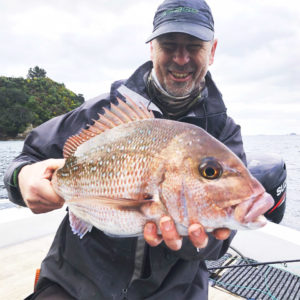
Being involved in the LegaSea FishCare programme has given me a tangible way to share the aligned qualities of fly-fishing and communicate why it is so important that we take responsibility. It is through this programme I have witnessed a culture shift as many fishers move towards best practice principles. I truly believe that when we lose access to the wild places and natural abundance of fish in our oceans it will be too late, it is a paradoxical truth that catching fish is a vital part of saving fish. We must value them and do what we can to ensure we can always go fishing.
When chartering, it is rare that my clients want to take fish home but I encourage this celebration and carry saltwater ice to slurry the catch after quick dispatch. Many of my clients talk about the shift in their own expectations as the goalposts are no longer about the most or biggest catches but about the experience itself. In this busy world, this gift of being on the ocean is often the greatest reward.
Matt von Sturmer – saltflyfish.co.nz
Matt von Sturmer is one of our valued FishCare ambassadors who practices kaitiaki and helps others to adopt the same principles.

